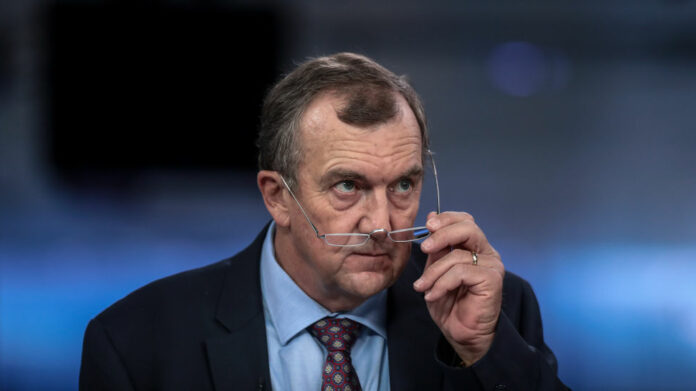
BARRICK Gold would in future be able to repatriate the free cash generated by the Kibali gold mine in the Democratic Republic of Congo (DRC) split 50/50 between dividends and debt repayments in terms of an agreement with the DRC government.
The arrangement follows a hiatus lasting several years during which Barrick was unable to repatriate the funds building up in its bank accounts in the DRC despite repeated assurances from Barrick CEO Mark Bristow that the release of the funds was imminent.
The funds are jointly owned by Barrick and AngloGold Ashanti which are partners in the Kibali mine and the total amount being held up in the DRC had reached more than one billion dollars by the end of last year. The break through came during the first quarter of 2022 when the funds were finally released.
Asked what the bottom-line problem was that had held up the release of the funds for so long Bristow replied: “There was no problem. I always said we would get it out and I always said there would be no deals.
“It was admin. There was a new prime minister and new cabinet appointees. You could speculate – and this is speculation – that when you have such a large amount of money sitting in a bank account people find it difficult to let it go.
“But the key issue is that at no stage did somebody say ‘it’s not your right’ or ‘you can’t do it’ or ‘you need to do something else’. We just had to be patient. If you are in a rush when you are investing in emerging markets then you lose.”
Bristow once again stressed the importance of partnerships between mining companies and governments over mining developments. “We all need to change our behaviour. The mining industry has a reputation because – in the past and there are certainly some still – companies were focused on the bad side of exploitation.”
On the other side of the coin, he pointed out that governments often suffered from an urge to get all that they could get as soon as they could get it.
“We have seen that play out in Zambia in the past more than once; we’ve seen it in the DRC where there has been no significant new investment since the introduction of a regressive mining code in 2018, and we witnessed it in Mali as the successive governments over the past two decades have raised the economic sharing from 55/45 in favour of the government to 70/30 also in favour of the government.”
Refused to roll over
Asked how Barrick had managed to strike a favourable deal with the government of Tanzania – after the problems experienced there by former subsidiary Acacia – but where it was now bullish on future prospects Bristow replied: “We spent time there and built relationships and refused to roll over.”
He added that in the early Nineties Tanzania was the leader in mining privatisation. “It had the best mining code in the world at that time – as good as the United States – and the mining industry did themselves a disservice by exploiting this by becoming experts in not paying taxes.
“We dealt with it by saying we will split the economics after capital redemption 50/50. They sit on our board. They see what we do. They cannot blame us for anything because they are part of it. They are real partners.
“Tanzania has understood that long-term foreign investment should be encouraged because it delivers long-term revenues in the form of royalties, taxes, VAT, payroll taxes, import duties and many more.
“That is what we are now doing in Pakistan with the Reko Diq copper/gold project.”











